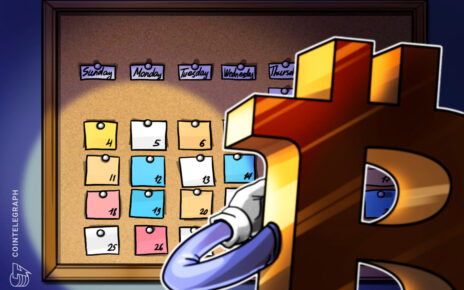.jpg)
Have you heard of Ethereum? It's a smart contract platform, allowing people to create and run decentralized apps without any third-party help. But why is it so important? This article will give you the basics of Ethereum, and why it's such a game-changer in the digital economy.
Programmable
Check out the programmability of Ethereum in the table below:
| Feature | Description |
|---|---|
| Smart Contracts | Agreements that happen automatically when conditions are met, written in code. |
| Automated Transactions | Transactions that happen automatically with certain conditions. |
| Trustless Interactions | Interactions between parties without needing trust in a central authority. |
| Decentralization | No single point of control, making Ethereum resistant to censorship and tampering. |
A unique element is Ethereum's language called Solidity. It is designed for writing smart contracts on the Ethereum platform, making it simple for developers.
An example of Ethereum's programmable capabilities is a decentralized insurance platform. Customers can input their insurance needs, then smart contracts underwrite policies based on predefined criteria. This shows how Ethereum's programmability can change industries and create new business models.
From DeFi to NFTs, Ethereum's ecosystem is growing quickly.
Growing ecosystem
As the Ethereum ecosystem grows, various industries are utilizing the power of smart contracts. Here's a look at some key areas:| DeFi | NFTs | Gaming | DApps |
| $75 billion locked | Unique digital assets | Vibrant virtual economies | Wide variety of decentralized applications |
Potential to disrupt existing industries
Blockchain tech, particularly Ethereum, could totally revolutionize multiple industries. Its smart contracts can automate processes, remove intermediaries, and make things more secure, transparent, and efficient.
For example, DeFi apps on Ethereum are revolutionizing finance. They offer cross-border transactions, decentralized lending and borrowing platforms, and cost-effective remittance services.
Smart contracts on Ethereum enable the making of self-executing contracts without third parties. This could speed up contract execution, reduce legal bills, and guarantee transparency and fairness in dispute resolution.
Ethereum-based supply chain solutions offer full traceability, blocking fraud and counterfeiting. They also provide real-time inventory management, supplier verification, and automated compliance with regulations.
Plus, Ethereum's programmable nature helps developers create a variety of DApps that could disrupt existing business models in various sectors.
71% of businesses expect blockchain tech to be mainstream within 3 years, according to Deloitte.
Frequently Asked Questions
Question 1: What is Ethereum?
Answer: Ethereum is a decentralized blockchain platform that enables the creation and execution of smart contracts. It is known for its cryptocurrency called Ether (ETH) and serves as a foundation for numerous decentralized applications (dApps) and blockchain projects.
Question 2: What are smart contracts?
Answer: Smart contracts are self-executing contracts with the terms of the agreement directly written into lines of code. They automatically execute actions when predefined conditions are met, providing secure and tamper-proof transactions without the need for intermediaries.
Question 3: How does Ethereum support smart contracts?
Answer: Ethereum provides a decentralized, Turing-complete virtual machine called the Ethereum Virtual Machine (EVM). It allows developers to write smart contracts using Solidity, a high-level programming language specifically designed for Ethereum. These contracts are stored and executed across the Ethereum network.
Question 4: What are the advantages of using Ethereum for smart contracts?
Answer: Ethereum offers several advantages for smart contracts, including immutability, transparency, and decentralization. It eliminates the need for intermediaries, reduces costs, and enhances security through cryptographic principles. Additionally, Ethereum's wide adoption and large developer community contribute to its robustness and innovation.
Question 5: Can smart contracts on Ethereum be modified or terminated?
Answer: Once deployed on the Ethereum network, smart contracts cannot be modified or terminated by any external party. They are immutable and execute as per the code written. It is crucial to ensure the accuracy and security of the code before deployment to avoid any unintended outcomes.
Question 6: How can I get started with Ethereum and smart contracts?
Answer: To get started, you can explore online resources, tutorials, and documentation provided by the Ethereum Foundation. You can also set up a development environment, learn Solidity programming, and experiment with deploying and interacting with smart contracts through tools like Remix and MetaMask.





